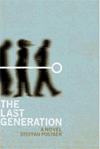
Most of the television shows and movies I watch contain a preponderance of alcohol, tobacco or drugs. Many of them are integral to the plot itself. Platforms like Netflix and Hulu (among many, many others), free and clear of network restrictions, opened Pandora’s Box in terms of sexual and violent content. To say nothing of the Internet.
Some of the most popular and/or critically acclaimed shows on any screen are predominantly about illicit drug use, alcoholism and related topics: Breaking Bad (Methamphetamine), Shameless (ETOH) and Euphoria (<ATOD) One needn’t be a pearl-clutcher to say it’s difficult finding mass-appeal content that doesn’t feature ATOD’s.
But I tried.
“PEN 15” is a serial on Hulu about two awkward adolescent girls navigating the perils of middle school. The conceit is that the two leads are actually adult women playing themselves from that time period. It’s actually pretty good.
In the episode I watched the two girls find them selves hiding in the girl’s bathroom at school to avoid bullies (a constant threat for them), when they find a cigarette on the floor. This lone cigarette proves to be a catalyst for all manner of awkward, ridiculous and potentially scandalous ADULT behavior.
Later, the girls are playing with dolls together when their entire childhood gets called into question. Old behaviors suddenly seem boring to them –childish.
They toss the dolls onto the floor and reach for the cigarette.
But in order to smoke it they will need a lighter. So the girls decide to dress up to look older and this becomes a whole scene onto itself. Using makeup they took from their parents and the “flyest” clothes they can muster, the “ladies” glam up in order to venture to the corner store in their neighborhood. They believe looking older is necessary in order to purchase a Bic lighter. There, one mocks a child who is line with his mother for being “with his mommy.” The two adolescents ape all manner of supposed older behavior –costume, makeup, attitude- all because of the still un-smoked cigarette they found in girl’s bathroom at school.
As it has been for countless adolescents, the cigarette symbolizes adulthood. PEN 15 (a combination of characters intended to mimic “penis”) is a coming of age comedy and the cigarette portends all that await these two awkward kids on the cusp of being teenagers.
The show then introduces another concept familiar to every kid who ever got the talk about ATOD: that smoking cigarettes is a gateway to even more scandalous behavior. The girls show up at the hangout of a group of 8th grade girls and ask if they can join them “to smoke.” The older girls invite them in. After a lot of posturing (in order to impress the older kids) one ends up chugging a beer. The other tries a whippet (inhalant) and passes out.
Not only has the still-unsmoked cigarette lead to alcohol and inhalants it has also presented the viewer with a classic case of peer pressure and its effect on young people regarding drinking and using drugs.
Then the boys show up. In a painfully awkward scene each boy chooses a girl ostensibly to pair off and make out: the ultimate taboo! The two girls reluctantly pair up with two boys and, while they don’t “hook up” per se, the promise of illicit sex hangs in the air. We see brief scenes of the 8th graders canoodling in the dark.
A parent shows up and “busts” the party before anything else occurs. The two hero girls end up taking the fall for the beer and bad behavior. A be careful what you wish for moment for the two aspiring teenagers. Here, getting busted is also an iconic plot point in the age-old tale of experimenting with drugs. In shows like Breaking Bad and Shameless people get arrested or even killed for getting caught, Of course, in this story nothing like that remotely happens. The two are sent home to their mothers.
Handled briefly here, a poignant scene featuring one of the girl’s mothers frowning sadly at her daughter. She does nothing but walk away. Yet, her silence speaks volumes, more punishing to her child than a scolding. A parent’s disappointment is yet another trope in such stories (and in reality). The sad, helpless mother is an indelible part of the ATOD narrative.
The final scene of the episode has the two girls back in their playroom… pondering the unlit cigarette that started it all. They decide to put it away in a jewel box, saving it for another day. They resume playing with their dolls. Roll credits.
To be sure, the ending is sweet. Yet, it’s interesting to note that they do not dispose of the cigarette but rather hold onto it. The butt caused them nothing but trouble yet the trouble was a shared memory of an adventure that bonded the two girls. Romanticism is an inextricable part of ATOD’s. Always was and maybe always will be.
Saturday Night Fever. The morning after.
January 21, 2020

When I was a teenager I didn’t see this movie because of the music and the fashion -not my thing. Last night, I finally watched it with my wife and daughters. Honestly, I was stunned by the movie’s misogyny and racism. A gang rape is handled with casual indifference as is a beat-down of an innocent group of Latinos. It’s like, whoops that happened. In one scene a girl begs John Travolta’s character to let her wipe off his sweat. And on and on. At least “Last Exit to Brooklyn” and “The Accused” had a moral core. You knew badness when you saw it. With “Saturday Night Fever” it’s all just so… whatever. I can’t imagine this script getting made today, let alone written. Am I over-reacting?
Coen Brother’s masterful TVC for Mercedes AMG demonstrates why quality film making still matters in advertising.
January 27, 2017
The high degree of craft demonstrated by the Coen Brothers is obvious in this new “film” for Mercedes AMG. The casting, wardrobe, acting, editing: it’s all first rate. Seeing Fonda at the end is wonderful – the cocky peace sign he flashes. Yet, everyone in the commercial shines, transcending the biker stereotype. You’ve got to love the two brutes getting stuck in the silver chains adorning their leathers. Or the grizzled biker chick wearing her lines like so many badges. Good stuff, which is what we’d expect from a Super Bowl commercial directed by the Coen Brothers.
Beyond the obvious, however, a thing I really dig (60’s verb intentional) about this film is how damn analog it is, on both sides of the camera. No smartphones. No CGI. Nobody’s tweeting. Instead we see a jukebox. Playing Steppenwolf. Dude holds up a cigarette lighter not an iPhone. Gloriously absent is all evidence of the modern world.
That is until we see the sleek new AMG roadster at the end.
Lots of commercials riff on previous decades but we can often sense the phoniness, kind of like viewing an off-Broadway production of Hair. Something about the cast or wardrobe gives it away. And we’re like: Oh, here’s a commercial making fun of the 60’s, 70’s or 80’s.
But not here. The righteousness of this commercial lifts it above mere advertising content. Rich in detail, fun to watch and just plain good the Coen Brothers remind us of why quality filmmaking still matters. Even in advertising. Especially in advertising.
Agency credit (and kudos) to Antoni, Germany and Merkley + Partners, USA

Say what you will about the horror franchise but the latest Purge movie is eerily prophetic in its depiction of the divisive state of our Union. For those unawares, the concept deals with a government sanctioned night of rage that takes place once a year in America. All crimes, including murder, are legal for 12 hours. The subsequent carnage is supposed to “purge” everyone’s pent up frustrations and lead to less crime overall. Something like that anyway.
Regardless of what we think of this science fiction one cannot deny how prescient the idea is. So ripe is the concept I don’t know where to begin. Ragged race relations? Check. Police brutality? Check. The gun debate? Check. Political unrest? Check. Rich vs. poor? Check. And on and on. Clearly, The Purge has tapped into the zeitgeist in ways unimaginable and uncomfortable.
None more so that the latest entry, aptly titled The Purge: Election Year.
One scene has a corrupt, white officer shooting a young black man dead through the window of his car. Another has angry black civilians rampaging against a stronghold of rich white people. At times it was like watching You Tube videos of chaos in our streets. And I haven’t even mentioned the gross similarities between the “Election Year” depicted in the movie and the one we are enduring now. The two Presidential candidates are a fearsome and corrupt rich white man and a liberal leaning female. Sound familiar?
Of course the film is over-the-top and grossly distorted. But it’s all too freakishly on point. That the film was produced well before the recent mayhem in our country further adds to its power. If America wasn’t going through what it is going through right now this movie would come and go as a mildly entertaining piece of pulp genre. Instead, it damn near passes for a documentary.
According to Tim Nudd’s marvelous piece in Adweek, this Secret deodorant commercial debuted on the season premier of The Bachelorette -a show I deplore but my wife and daughter’s adore. I’m not going to get into a rant on that but I do recognize the genius of this media buy. Like the Bachelor, the Bachelorette is a reality show about choosing a mate for life. Though such outcomes rarely happen long term for these contestants, the show acts as if it most certainly will. And that mythology is a potent one for lots of women and, I suppose, a fair amount of men. Whatever. This commercial flawlessly plays off and pays off the proposal ritual.
Instead of a rose, we get a fortune cookie. And the result is charmingly messed up. I won’t go into the plot. Watch the film yourself. It’s fabulous storytelling. Nudd’s analysis is spot on:
It’s a sly mix of comedy and tension, with great casting and subtle acting that really lets the scenario build nicely. When the reveal happens—even if you see it coming—it feels believable, and like a breakthrough, because of the obvious stress of the situation. Which by the way makes for a fine connection to the brand, even if inverting gender roles to sell product can still feel icky, however pure the motive.
The craft is first rate as well. Directed by Aoife McArdle for Wieden + Kennedy, the realness is laudatory – far more authentic than the Bachelorette that’s for sure. Everything about the spot rings true. (Not faux true.) The cast. The location. Direction and acting. It all works. I especially love the woman. Rather than get into specifics, let me just say it feels like we’re eavesdropping on a totally genuine moment and one that is delightful, romantic and full of life. Real life.



 The Happy Soul Industry
The Happy Soul Industry The Last Generation
The Last Generation